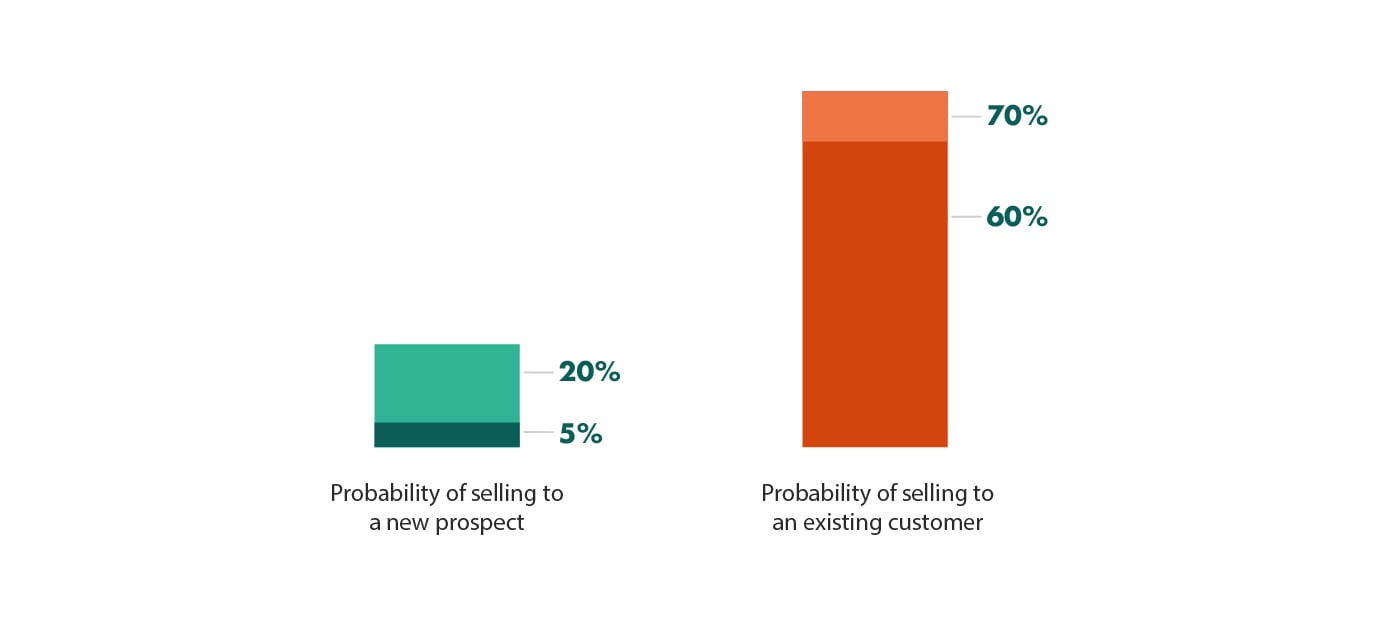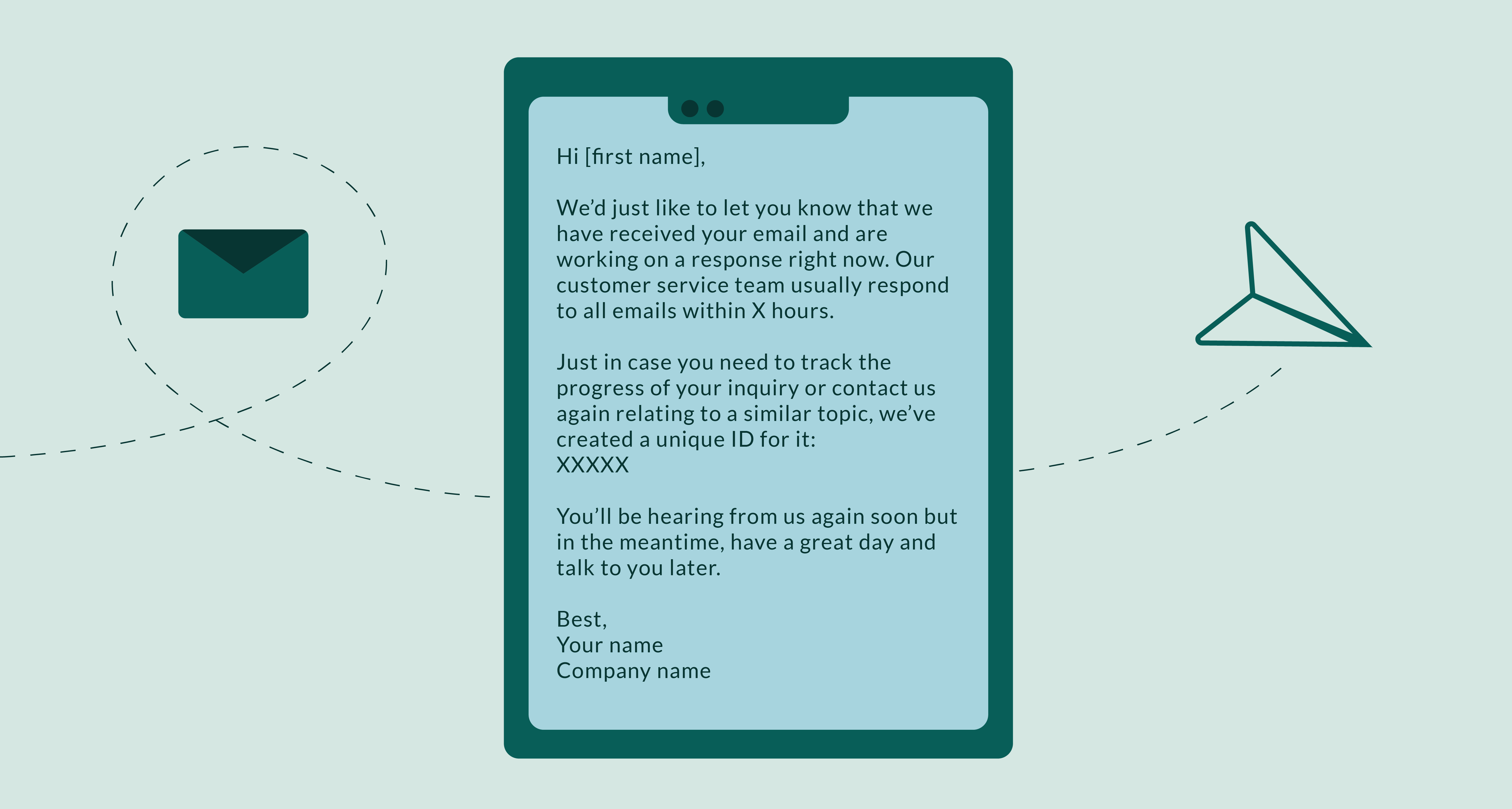Finding and converting customers is only half the battle.
The real challenge - and opportunity - comes in what happens next: how you build, maintain, and scale relationships in a way that drives long-term growth.
For mid-sized B2B companies, where deals are complex and cycles are long, relationships aren’t just about being responsive. They’re about being consistent, informed, and value-driven at every stage of the customer journey.
That’s where CRM becomes the backbone of a scalable, customer-centric operation.
More than just a contact database, CRM platforms help unify data, standardize processes, and give teams across sales, marketing, and service a shared view of every customer interaction.
And while CRM can support everything from lead generation to reporting, its most valuable impact is often the most fundamental: building stronger, more loyal customer relationships.
In this article, we’ll explore 7 CRM benefits that directly improve how you manage, scale, and deepen customer relationships - while boosting internal alignment, visibility, and speed.
Ready to strengthen every stage of your customer journey?
Explore how SuperOffice CRM helps unify your teams and deepen relationships.
CRM Benefit #1: Know Your Customers Better (and in Context)
The foundation of every great customer relationship is understanding. But as your customer base grows, it becomes harder to keep track of who said what, when - and what they need next.
That’s where CRM enables consistency, visibility, and speed at scale.
A modern CRM gives your entire organization a 360-degree view of each customer, capturing every interaction - from sales calls and emails to support cases, contracts, and activity history.
This single source of truth ensures that every touchpoint is informed, personalized, and relevant - no matter who’s talking to the customer.
This depth of insight is why 72% of companies adopt CRM software to track interactions and customer history. It eliminates information silos, reduces duplicate effort, and lets your team build real relationships - not just respond to tickets.
With CRM, your team can instantly see:
- Full contact details (name, title, company, region)
- Communication preferences and history
- Related accounts, deals, or support requests
- Lifecycle stage (lead, onboarding, active, renewal)
- Recent activities, meetings, and notes across departments
Why it matters: When your sales team knows what your customer service team resolved last week, or your marketing team sees which case study was opened yesterday, your entire organization becomes more aligned, more consistent, and more customer-focused.

CRM Self-Check: Do You Need a Smarter Way to Manage Customer Relationships?
If any of this sound familiar, your team may be ready for a CRM system:
- Customer conversations are scattered across email, spreadsheets, or individual inboxes
- You lose momentum because follow-ups are forgotten or missed
- Multiple teams interact with the same customer - but without shared context
- You don’t have a clear view of who your top customers actually are
- Reporting is manual, inconsistent, or takes too long to generate
- Your data privacy compliance process is ad hoc or risky
- Key deals or renewals fall through the cracks
If you checked even one box, it might be time to explore CRM.
A centralized system can help you simplify processes, align your teams, and build longer-lasting customer relationships.
See how SuperOffice CRM helps mid-sized B2B companies scale relationships with structure and insight.
CRM Benefit #2: Segment Your Audience for Smarter Engagement
Not all customers are created equal - and not every message should be the same.
As your business grows, so does the diversity of your customer base: different industries, deal sizes, lifecycle stages, and engagement levels.
Without proper segmentation, it becomes nearly impossible to tailor your communication, prioritize high-value opportunities, or launch targeted campaigns.
That’s where CRM excels.
With the right CRM, you can segment your audience based on firmographics, behavior, buying history, or engagement, and take action accordingly.
Whether you’re launching a targeted email campaign, prioritizing renewals, or identifying dormant accounts, segmentation helps you be more relevant, more timely, and more effective.
Use CRM segmentation to:
- Group contacts by industry, company size, or region
- Target decision-makers based on role or buying stage
- Identify your top 20% of customers by lifetime value
- Flag accounts at risk due to inactivity or unresolved issues
- Launch account-based marketing (ABM) strategies with confidence
Why it matters: Segmentation turns a static database into an active engagement engine. It lets your team deliver the right message to the right person at the right time - without guesswork or mass-blasting.
When every outreach feels personalized and relevant, you don’t just get more engagement - you build trust, credibility, and momentum with the customers that matter most.
CRM Benefit #3: Improve Retention Through Consistency and Follow-Up
Acquiring a new customer is exciting - but keeping them is where the real value lies.
In fact, studies (more of a guideline, really) show that you’re 5 to 7 times more likely to sell to an existing customer than to sell to a new one. And for many B2B companies, renewals and long-term relationships are the backbone of profitability.

CRM helps you retain customers by creating structure around follow-up, visibility around engagement, and accountability across teams.
With CRM, no customer goes forgotten. The system can flag accounts with low activity, missed check-ins, or upcoming renewal dates - helping your team proactively maintain contact and resolve risks early.
CRM supports retention by:
- Automating follow-up reminders and renewal alerts
- Tracking support history to identify satisfaction risks
- Flagging key milestones (like onboarding success or expansion opportunities)
- Ensuring no account goes untouched during critical periods
- Enabling Customer Success to act before issues escalate
Why it matters: A CRM-driven retention strategy keeps relationships warm, expectations aligned, and problems visible before they become reasons to churn. The result? Higher renewal rates, stronger customer loyalty, and increased lifetime value.
If your team is only focused on “new” business, CRM gives you the tools to balance that by protecting the value of the customers you already have.
Don’t just close more deals - keep them.
Book a demo and see how SuperOffice helps increase retention with structured follow-up and insights.
CRM Benefit #4: Anticipate Customer Needs Before They Ask
The most valuable businesses don’t just respond to customer needs - they anticipate them.
Whether it’s knowing when a renewal is coming up, recognizing buying patterns, or predicting support needs, CRM helps your team stay one step ahead.
By centralizing historical data - from past purchases and engagement to support interactions and lifecycle milestones - CRM reveals patterns that would otherwise go unnoticed.
That insight allows your team to personalize outreach, recommend timely solutions, and add value before the customer even asks.
For B2B companies with long sales cycles and complex accounts, CRM provides the structure and insight to manage relationships more effectively.
CRM helps you anticipate by:
- Tracking product usage or service history for upsell signals
- Surfacing past issues or pain points during sales conversations
- Alerting teams to periods of low engagement or high churn risk
- Enabling contextual cross-sell or expansion based on purchase history
- Informing account reviews with rich customer intelligence
Why it matters: When customers feel like you “just get them,” trust deepens. CRM makes that possible - not through guesswork, but through data-informed decisions and proactive action.
Anticipating needs doesn’t just drive revenue. It builds relationships grounded in confidence and care.
CRM Benefit #5: Communicate Faster - with More Relevance
In B2B, speed and relevance go hand in hand.
Whether you’re responding to a sales inquiry, handling a support request, or following up after a demo, delays - or the wrong message - can stall momentum and erode trust.
A CRM helps you deliver the right message, faster. With centralized customer data and communication history, your team has everything they need to respond quickly and contextually - no digging through inboxes or spreadsheets.
Even better, CRM tools often come with templates, automations, and scheduling features that help you streamline repetitive tasks without losing the human touch.
CRM improves communication by:
- Giving you instant access to past conversations, case history, and preferences
- Offering email and SMS templates that maintain consistency
- Enabling automated follow-ups for onboarding, check-ins, or renewals
- Providing shared notes so everyone knows the latest status
- Allowing replies that are fast, but still personalized and helpful
Why it matters: According to our own Customer Service Benchmark Report, 90% of companies don’t acknowledge support emails with an autoresponder - a missed opportunity to set expectations. CRM fixes that instantly.
When every team member communicates with speed, professionalism, and insight, the customer experience feels smooth, thoughtful, and unified.

CRM Benefit #6: Strengthen Data Privacy and Compliance
Trust isn’t just built through service - it’s earned by how you manage data.
With regulations like GDPR and growing concerns around data privacy, B2B companies must show customers they can handle personal information with care, transparency, and security.
A modern CRM helps you embed data compliance into your daily operations, reducing legal risk while improving customer trust. From capturing consent and managing email preferences to automating data retention rules, CRM turns complex compliance tasks into streamlined workflows.
CRM supports data protection by:
- Storing consent records for contact data usage
- Automating opt-in/opt-out email communications
- Managing contact preferences across regions and campaigns
- Enabling bulk updates or deletions when regulations require it
- Keeping a full audit trail of interactions and permission changes
Why it matters: Manual data handling increases the risk of human error - and non-compliance. CRM removes that friction and gives your team a reliable, trackable way to stay compliant.
Beyond regulation, this builds confidence. Customers are more likely to do business with brands that handle their data responsibly and transparently.
Data compliance made simple.

Talk to a CRM expert about how SuperOffice helps you build trust while staying GDPR compliant.
CRM Benefit #7: Align Teams Around a Single Source of Truth
Strong customer relationships don’t live in silos.
In B2B organizations, they’re built through consistent experiences across sales, marketing, and customer service. That’s hard to do when each team is working off different tools, systems, or assumptions.
A CRM brings everyone together. It acts as a centralized platform for customer data, conversations, and history, ensuring that every team works with the same context - whether closing a deal, launching a campaign, or resolving an issue.
This alignment not only improves collaboration - it enhances the customer’s experience by removing handoff friction, duplicated efforts, and gaps in communication.
With a shared system, teams spend less time searching, coordinating, or duplicating efforts - which is why CRM can increase sales productivity by up to 34%.
CRM boosts collaboration by:
- Giving every department access to up-to-date customer records
- Reducing back-and-forth between teams by centralizing notes and actions
- Enabling internal task assignment, tagging, and alerts
- Providing shared visibility into the customer journey - from first contact to renewal
- Making customer experience a company-wide responsibility
Why it matters: When your teams operate in sync, your customers feel it. Collaboration leads to faster decisions, fewer mistakes, and a more seamless experience across every touchpoint.
A unified CRM helps your organization scale without sacrificing service quality - because everyone stays on the same page.
Conclusion
Customer relationships are at the heart of your business - and CRM is the system that helps you manage them with purpose, consistency, and insight.
Whether you’re trying to improve retention, personalize outreach, strengthen internal collaboration, or stay ahead of customer needs, a modern CRM gives your teams the visibility and tools to make every interaction count.
These 7 benefits aren’t just tactical - they’re strategic. They help you:
- Turn scattered data into meaningful insight
- Move from reactive support to proactive engagement
- Align departments around the customer journey
- Scale your growth without sacrificing relationship quality
In a B2B environment where deals are complex and expectations are high, CRM isn’t just a helpful tool - it’s mission-critical infrastructure for building loyalty, trust, and long-term value.
And the payoff is real - with the majority of buyers saying they’ll pay more for a great customer experience, proving that better relationships don’t just retain revenue - they grow it.
Ready to build better customer relationships - at scale? Book a demo or talk to a CRM expert and see how SuperOffice helps mid-sized businesses grow smarter, not just faster.




